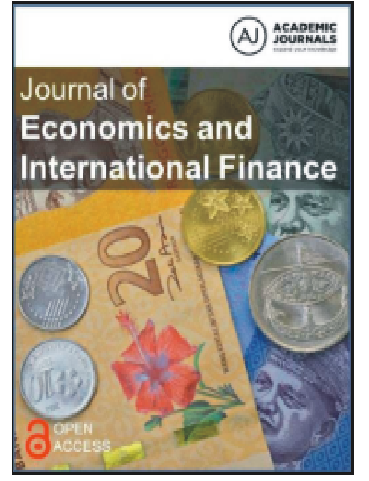Sponsor / Media Partnter
Sponsor / Media Partnter

EIN Presswire
EIN Presswire has a distribution "foot-print" that includes millions of users of our EIN Newsdesk media monitoring services. We also maintain one of the world's leading media directories providing us with up-to-date contacts for media in every country and U.S. state. Further distribution is achieved via RSS, email, partner websites, and social media. We are both a destination (EIN Newsdesk) and a distributor (EIN Presswire) for news. In one place you can distribute your news to the targeted audiences you select and monitor news on that topic published by thousands of worldwide sources.For more information or to try us FREE, please visit www.einpresswire.com/free

Journal of Economics and International Finance
Savings is a vital source of investment funds especially for developing economies. However, like in many developing countries, domestic savings in Kenya remain low. Hence, posing a significant development challenge. Household savings contribute a sizeable share of domestic and national savings in both industrial and developing countries. Households should not however, be considered as fully autonomous actors without the influence of institutions. Institutions influence behavior and therefore outcomes. The institutional theory of saving thus indicates that institutional factors significantly affect the ability to save. This study uses a ranked ordered multinomial/conditional probit model to analyze the effect of institutions on households’ savings in Kenya. Data from the Financial Access National 2006, 2009, and 2013 surveys was used in the analysis. The study results show that institutional factors including the travel cost to access a saving option, trust in a saving option, information and saving expectations influence the saving levels in Kenya. It is therefore important to address the travel cost of accessing the saving options through the promotion of non-traditional means of provision of saving services, build trust in saving options, and enhance financial education in the country. Further, enhancing formal education, income levels and reducing gender gaps is important in order to improve saving performance in the country.


